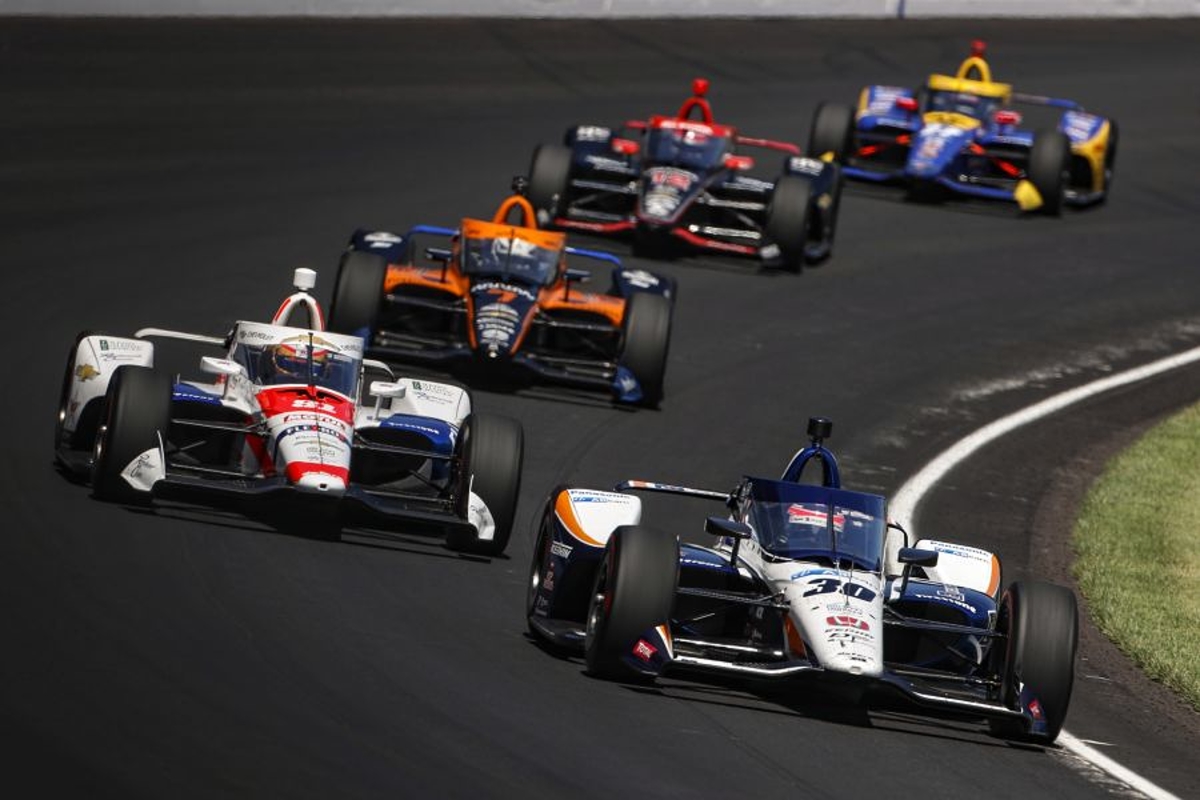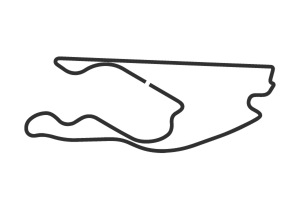Takuma Sato took victory in a highly dramatic Indianapolis 500 from Scott Dixon as Fernando Alonso limps to a forgetful 21st.
Sato claimed his second Indy 500 title in a race dominated by seven caution periods.
The race came to a close under caution after Spencer Pigot was involved in a heavy shunt with just five laps remaining on the counter.
Second placed Dixon had led 111 of the 200 laps but Sato timed his move to perfection, passing the New Zealander shortly after the final round of stops.
Pole sitter endured a day to forget as he rarely looked like posing a threat for the victory, eventually dropping to 13th.
Off the start Scott Dixon, Takuma Sato and Ryan Hunter-Reay jumped pole sitter Marco Andretti but after just five laps the race entered it's first caution phase as James Davison, racing for Dale Coyne Racing, retired.
The Australian had suffered an incredibly strange brake failure with the disc glowing red as though it had been locked on before exploding and destroying the wheel. The wheel and tyre both caught fire and the race was paused as a result.
On lap 13, the race returned to green and the lead trio of Dixon, Sato and Hunter-Reay began to work together to pull away from Andretti and the chasing pack.
12 laps of racing later, the race entered a second caution period after former Formula 1 driver Marcus Ericsson crashed his Chip Ganassi Racing entry into the turn one wall.
The Swede ran a wider line around turn one and, after making contact with the wall, slid to midway around turn two.
During the first caution, several drivers toward the back of the order had pitted but the majority pitted during the second. The net result saw 500 rookie Oliver Askew taking to the front of the pack, but this lead did not last long with 2019 winner Simon Pagenaud passing the rookie on the restart.
The front two became the first two drivers to pit under green conditions, boxing on lap 45 with three time winner Hélio Castroneves following them in one lap later as the pits became a hive of activity.
The pit shuffle again promoted Dixon to the front, this time with Alexander Rossi sitting close behind. For Dixon, leading so many laps early on was depleting his fuel reserves at a rate far higher than was ideal.
Pit stops are always an opportunity for errors, but for Rinus VeeKay it was a constant early source of problems. The rookie Dutchman first stalled in a stop, but at the next stop earned a stop-go penalty for hitting team personnel - locking his brakes and sliding into the mechanics while entering for a stop.
Shortly after Askew had completed his third stop, Dalton Kellett for A. J. Foyt Racing launched a failed overtake into turn three, but got caught in the aerowash and drifted to the outside and into the wall.
The driver most affected by the caution was Dixon, who lost a ten second lead with Sato and Rossi now close in tow.
Green flag racing lasted for all of two seconds as Conor Daly dropped a wheel onto the concrete apron through turn four and fired his Ed Carpenter Chevrolet into the wall.
Driving into a smokescreen, former race leader Oliver Askew took avoiding action but lost control of his Arrow McLaren SP Chevrolet and made heavy contact with both the wall and Daly.
Rossi wasted no time in climbing to the front as green flag racing once again resumed on lap 100.
Both he and Dixon were close to being able to make the distance on just two further stops, but it would require fuel saving and running in the draft.
Although from the competing Andretti Autosport and Chip Ganassi Racing squads, both run under Honda power, and the two garages agreed to hold fire and work together to ease away from the pack.
Lap 122 saw yet another caution period as rookie Álex Palou ran wide at turn one in an incident similar to that of Ericsson 98 laps previous. The Spaniard tried to slow before hitting the wall but locked all four tyres and was helpless to prevent his Dale Coyne Racing Honda from making the contact.
The caution came at the wrong time to enable drivers to make it to the flag on one more fuel stop, but all drivers save for Felix Rosenqvist pitted for fresh tyres.
What this did mean, was that only minimal fuel saving would be required to reach the flag on two stops.
During this period, Rossi went from potential race winner to outside bet for success as he was deemed to have been released from his stop in an unsafe manner and was sent to the back of the order.
Clearly angered by the punishment, Rossi went straight on the attack making up five positions on the first lap of racing but his chances of victory quickly went from slim to zero as he became the latest retiree.
Losing the rear at turn two, Rossi slid the majority of the way down the back straight. In four previous Indy 500 entries, Rossi had a record of one victory and no finish lower than seventh. Now, he can add a DNF to that list.
With 30 laps remaining, the top drivers had completed their scheduled stops. Shortly after exiting the pits, Dixon surrendered the lead to Sato.
Navigating traffic, Sato appeared to have the race almost sewn up when, with five laps to go, Spencer Pigot lost control through turn four and made heavy contact with the protected end of the wall on pit entry.
The resulting caution period saw the race conclude under yellow flag conditions, allowing Sato to win his second Indy 500.
Related











































 Grand Prix De Monaco 2025
Grand Prix De Monaco 2025  Gran Premio de España 2025
Gran Premio de España 2025  Grand Prix du Canada 2025
Grand Prix du Canada 2025  Grand Prix of Austria 2025
Grand Prix of Austria 2025  Grand Prix of Belgium 2025
Grand Prix of Belgium 2025  Grand Prix of Hungary 2025
Grand Prix of Hungary 2025  Grand Prix of Azerbaijan 2025
Grand Prix of Azerbaijan 2025  Grand Prix of Singapore 2025
Grand Prix of Singapore 2025  Gran Premio de la Ciudad de Mexico 2025
Gran Premio de la Ciudad de Mexico 2025  Grande Prêmio de São Paulo 2025
Grande Prêmio de São Paulo 2025  Qatar Grand Prix 2025
Qatar Grand Prix 2025  Grand Prix of Abu Dhabi 2025
Grand Prix of Abu Dhabi 2025 